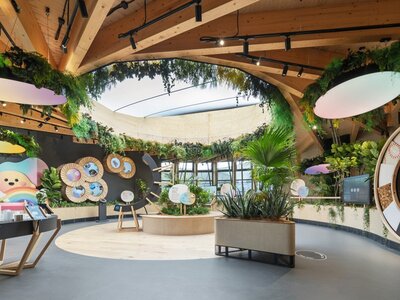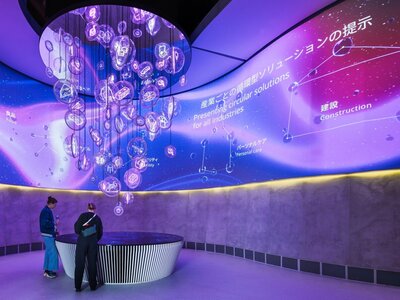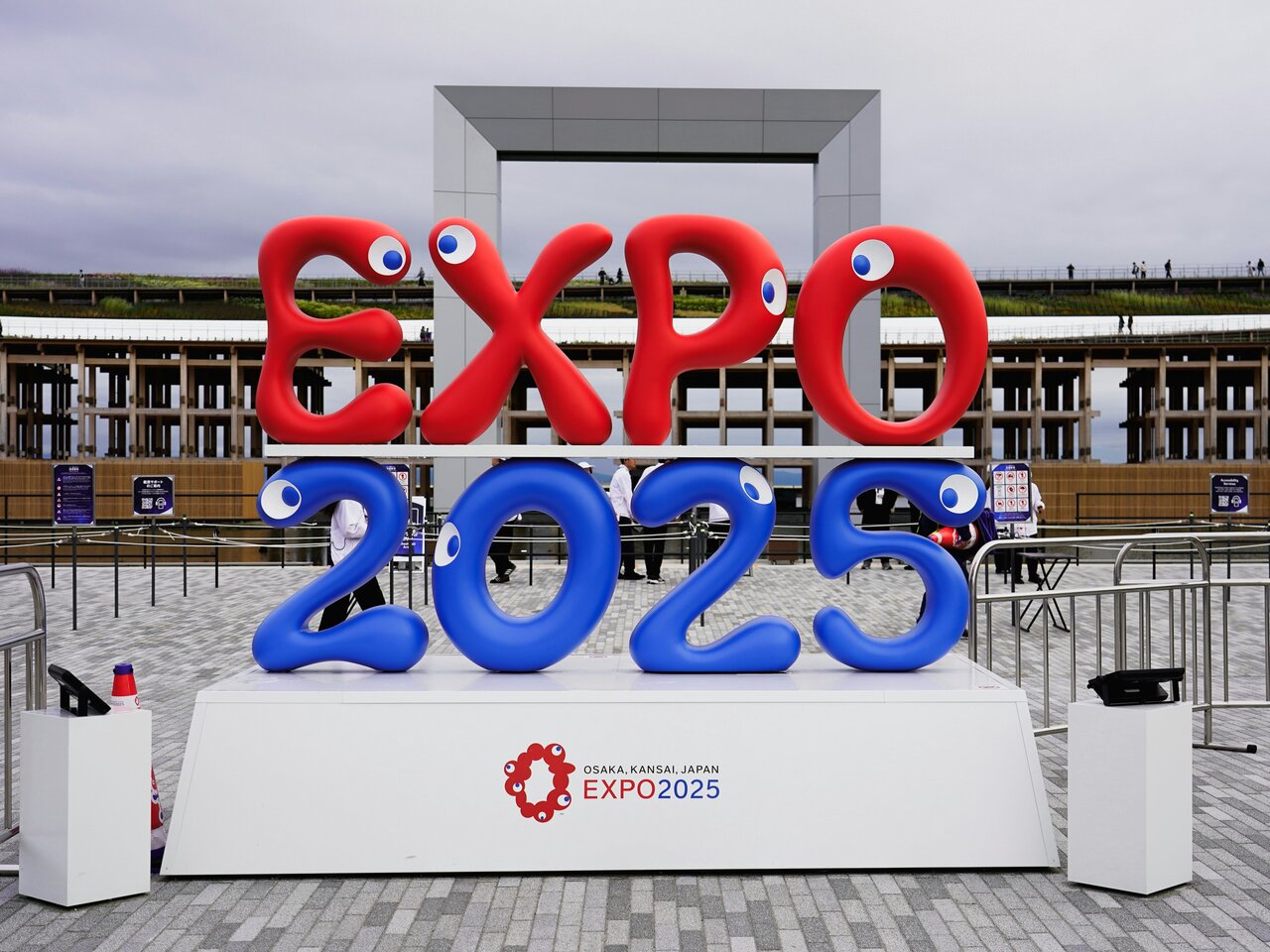Expo 2025 Osaka: That’s a Wrap
(eap) After 184 days, Expo 2025 Osaka in Japan came to an end in mid-October. This year’s world exposition recorded more than 28 million. Under the motto “Designing Future Society for Our Lives”, a total of 165 countries, regions and organizations presented themselves in the Japanese metropolis between 13 April and 13 October 2025. The futuristic pavilions and exhibits were displayed on Yumeshima Island – an artificial island created specifically for the expo, located about ten kilometres from Osaka’s city centre. Thematically, the exhibition focused on global challenges such as sustainability, climate, health, diversity and inclusion.
 The German pavilion exhibition took visitors on an emotional and multisensory journey to learn more about visionary concepts for the future.
Photo: facts & fiction © Stefan Schilling
The German pavilion exhibition took visitors on an emotional and multisensory journey to learn more about visionary concepts for the future.
Photo: facts & fiction © Stefan Schilling
The Federal Republic of Germany was also represented with its own national pavilion. Organized and operated by Koelnmesse on behalf of the Federal Ministry for Economic Affairs and Energy, the German Pavilion reported a positive outcome: “The German Pavilion impressively demonstrated how Germany combines innovation, design quality and circular economy,” said Patrick Specht, Commissioner General of the German Pavilion. He continued: “With our presentation, we succeeded in making future-oriented topics tangible and in sending out a strong message for a responsible and resource-efficient future.”
 The exhibition was designed as a sequence of immersive spatial experiences, with the route also following the leitmotif.
Photo: facts & fiction © Stefan Schilling
The exhibition was designed as a sequence of immersive spatial experiences, with the route also following the leitmotif.
Photo: facts & fiction © Stefan Schilling
Designed by LAVA Architects (Architect: Christian Tschersich), the German Pavilion was dedicated to the guiding theme of “circularity” – the idea of a circular economy. This concept was reflected not only in the pavilion’s thematic content but also in its architectural design and immersive exhibition experience. The central question addressed how future building and living could be realized under the guiding principle of “zero waste” – that is, without the production of waste. The agency facts & fiction was responsible for the conceptual design as well as the exhibition and media design of the German Pavilion. With 25 years of expo experience, the agency conceived and implemented Germany’s national participation in Japan as part of a working consortium for the second consecutive time. During the expo, the German Pavilion received several awards, including the “Sustainability Award” from the Bureau International des Expositions (BIE). Sebastian von Landsberg-Velen and Thomas Gottschlich, with their Cologne-based company 78degrees, served as the official catering partners of the German Pavilion, taking charge of operating the restaurant.
Following the 1970 edition, this was the second time that a world expo had been held in Osaka and the third time in Japan. The next expo is scheduled to take place in Riyadh, Saudi Arabia, in 2030. ■








